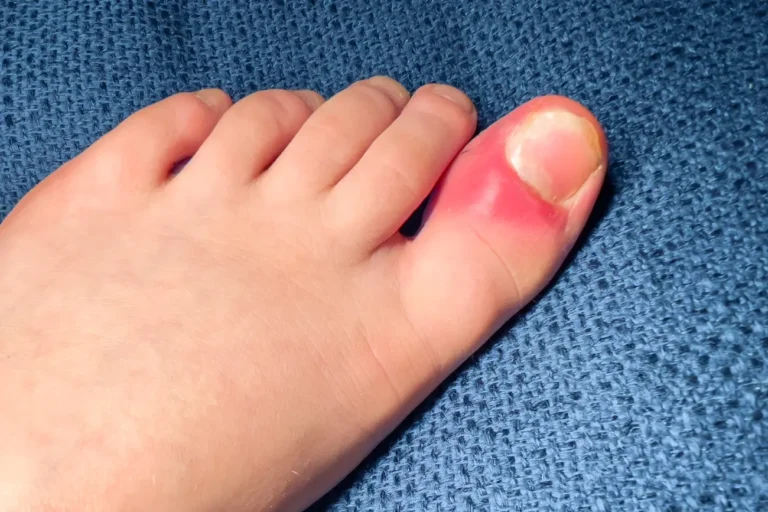Kidney stones are formed when certain minerals and salts, if not transported out of the body through urination, start depositing in the kidney or anywhere in the urinary tract. Small kidney stones may travel along from the kidneys to the urethra and don’t cause pain. However, the larger ones may lodge along the urinary tract and cause difficulty in urination, causing intense pain and blood in the urine.
Can Priority Urgent Care Treat Kidney Stones In Houston?
If you’re dealing with this condition, receiving immediate medical attention for kidney stone from our Urgent Care in Clear Lake Houston can be a great option for instant pain relief and ease in urination.
At Priority Urgent Care, we have experienced healthcare professionals who will perform quick diagnoses and create the right treatment plan according to your condition. Here’s all you need to know about kidney stones, including their types, causes, treatment options, and lifestyle management.
Types of Kidney Stones
The excessive intake or retention of certain minerals and substances in your blood cause kidney stones. These substances, when not dissolved, become concentrated and crystallized to form a solid stone.
Following are the four types of kidney stones according to the National Kidney Foundation, such as:
1. Calcium Oxalate and Phosphate Stones (80%)
2. Uric acid stones – In Patients With Gout
3. Struvite Stones – Caused by UTI
3. Cystine Stones – Amino acid building by a hereditary disorder “cystinuria”
Causes and Risk Factors of Kidney Stones
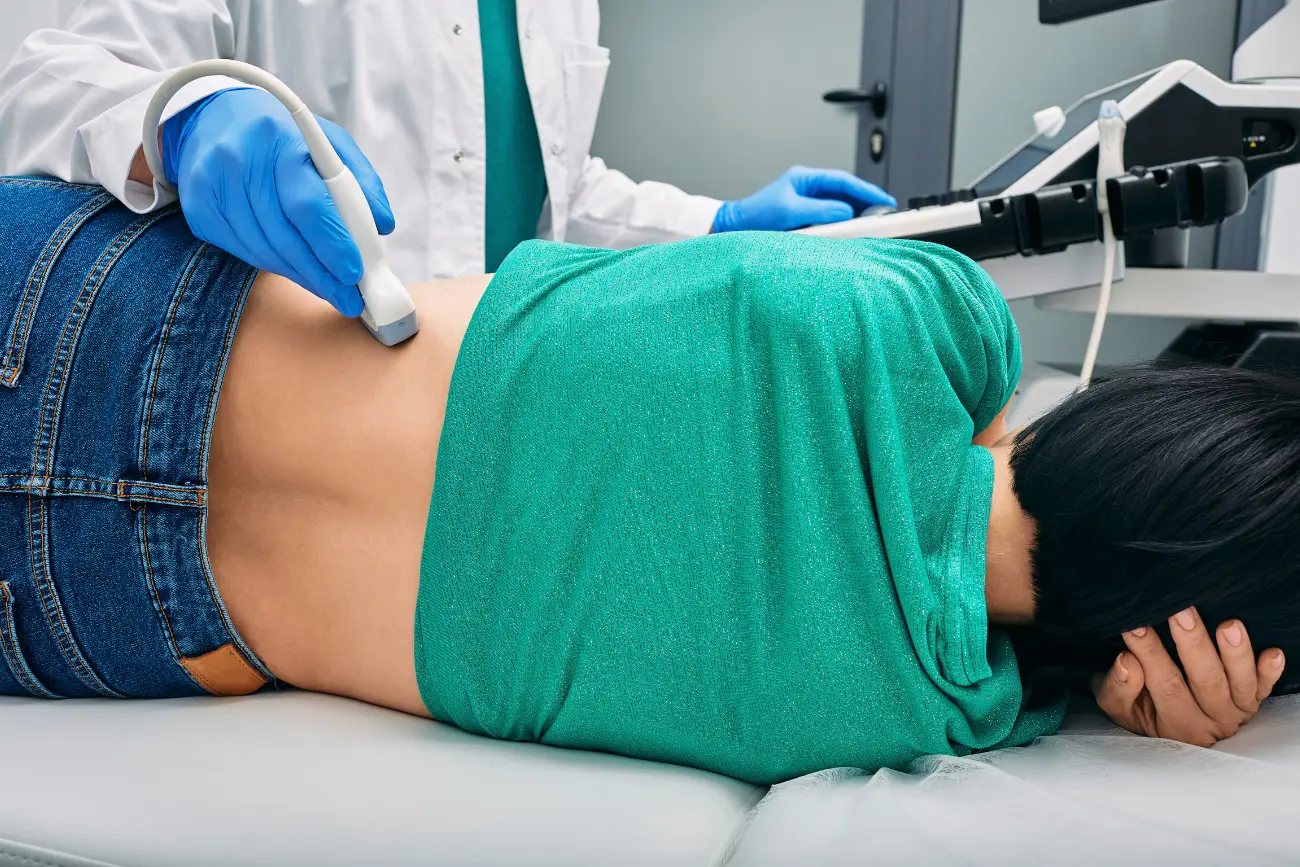
There can be multiple risk factors and causes of kidney stones, such as:
- Age 30-50
- Excessive Dehydration
- Genetic Predisposition
- A diet high in sugar, oxalate, sodium, or animal protein
- Medical conditions, such as gout or IBD
- High blood pressure and diabetes
How Can Urgent Care Diagnose Kidney Stones?
Once you feel symptoms of kidney stones, go to your nearest urgent care for a quick evaluation. Priority Urgent Care in Houston has experienced staff and doctors who work efficiently to diagnose your condition and assess its causes properly.
The following steps our urgent care follows to diagnose kidney stones:
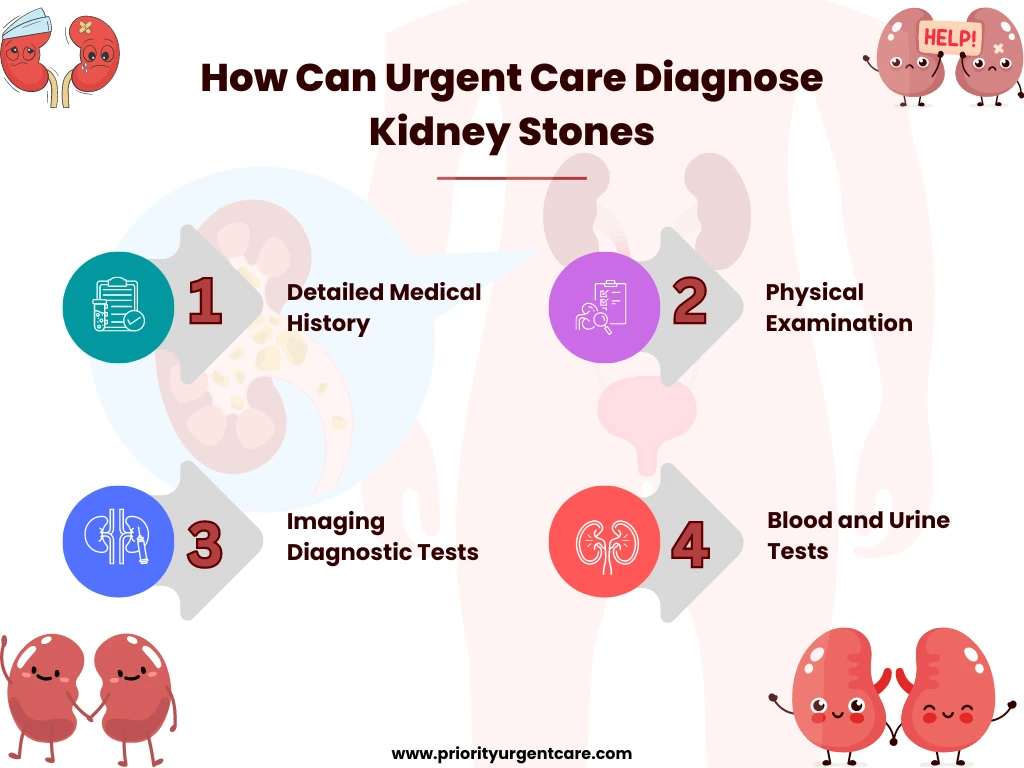
1. Detailed Medical History
It starts with your presenting complaint and the history of that complaint, including the site, onset, character, radiation, associated features, time course, exacerbating factors, severity, as well as your past medical history, past drug history, lifestyle, habits, and family history.
2. Physical Examination
The responsive staff at an urgent care clinic will perform a detailed physical examination of the abdomen, including inspection, percussion, palpation, and auscultation, to check for pain and tenderness in specific areas. Vitals are also taken to ensure an individual’s health is suitable for further investigation and treatment.
3. Imaging Diagnostic Tests
Abdominal x-rays, CT scans, and ultrasounds are used to diagnose kidney stones. X-rays are usually the primary test. While the others may be recommended if the condition cannot be diagnosed accurately and to provide a detailed view of the kidneys and urinary tract.
4. Blood and Urine Tests
A urine test will be performed to detect blood or minerals in the urine, while a blood test is necessary to rule out any infection.
Can Urgent Care Help With Kidney Stones?
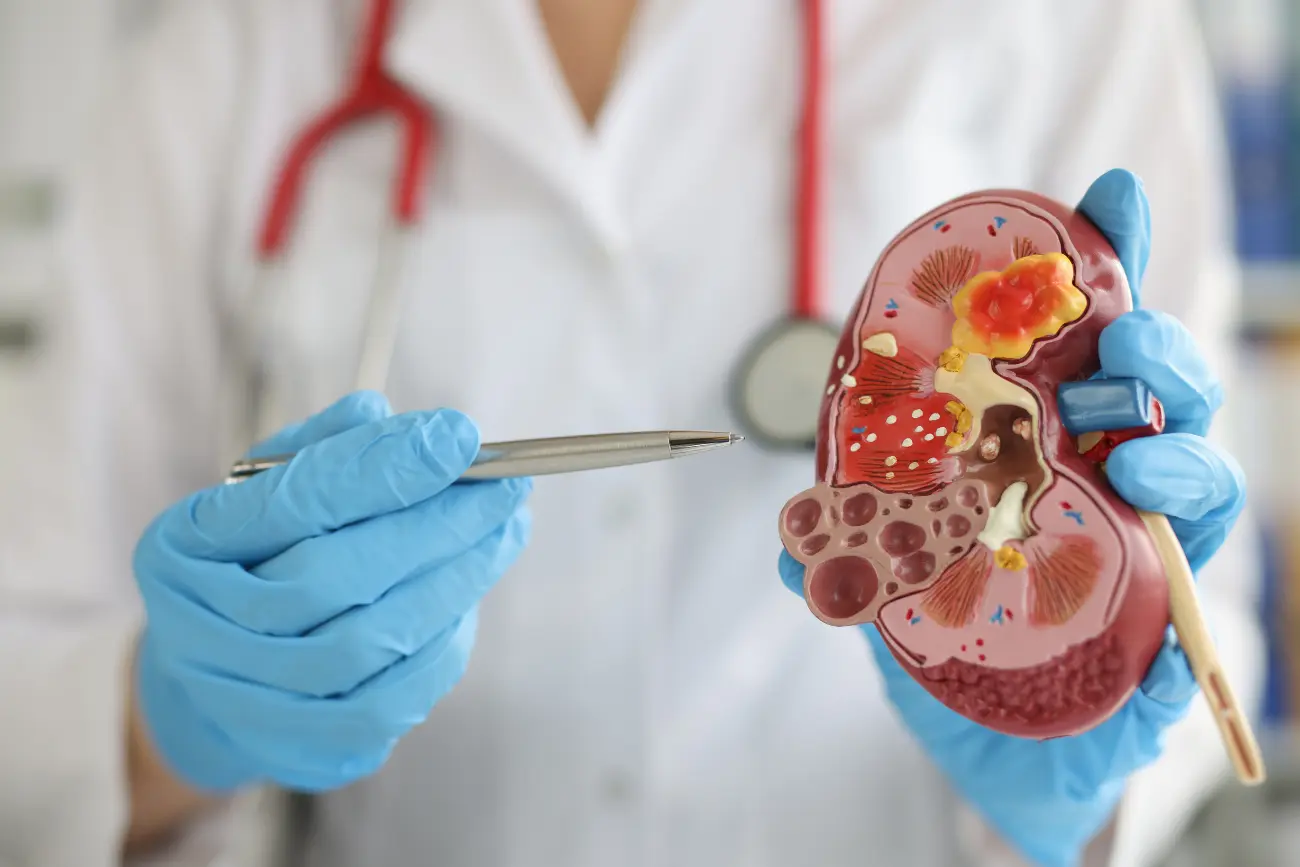
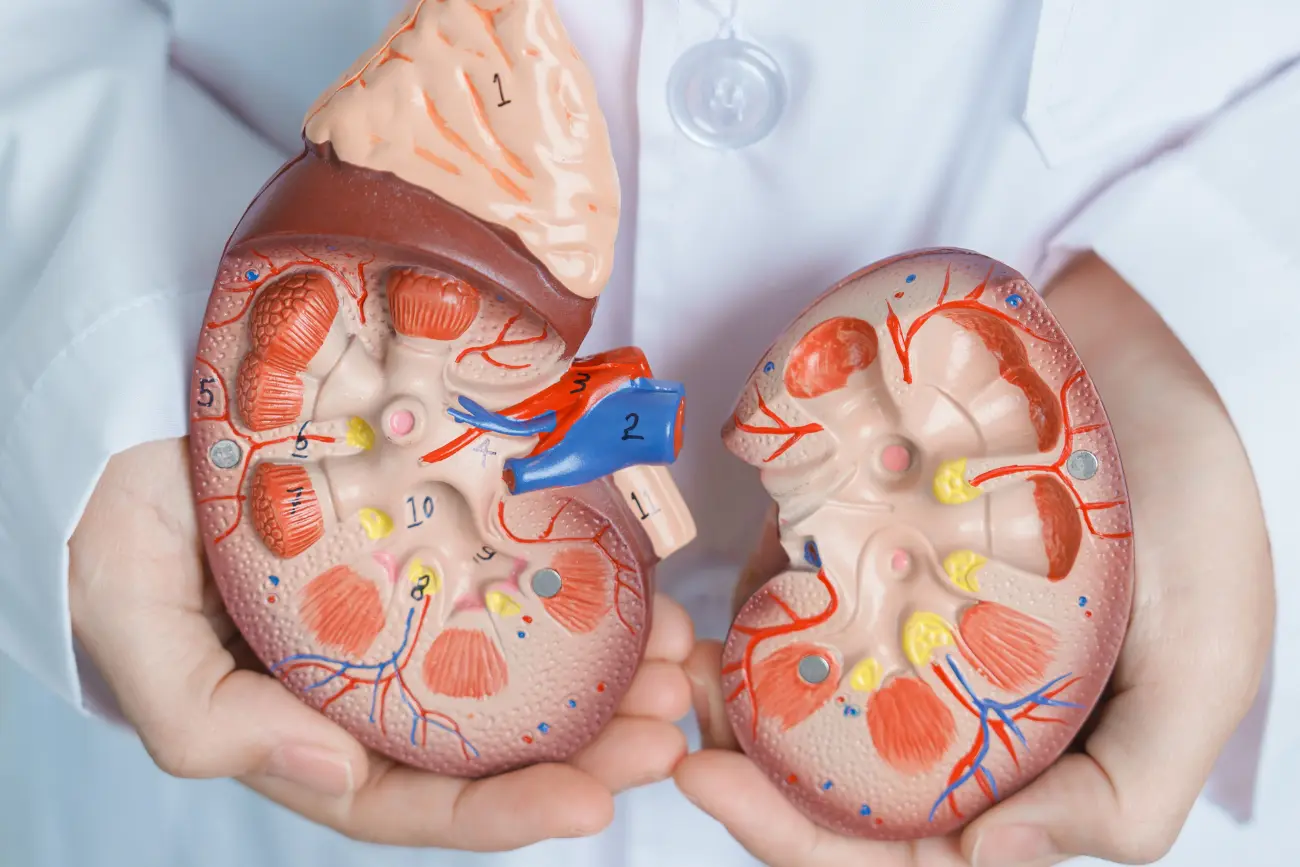
Once the kidney stones are diagnosed, the doctors at urgent care will recommend the best treatment option based on your specific needs, health condition, and size and location of kidney stones. The following are some of the major options to treat kidney stones:
1. Extracorporeal Shock Wave Lithotripsy (ESWL)
ESWL is a non-invasive treatment and the most common treatment of renal and ureteral stones in the United States. It is well-suited for patients who have small stones (less than 1 cm).
In this procedure, high-energy shock waves are struck onto the kidney stones, breaking them apart into smaller pieces. It is a common procedure performed on an outpatient basis, letting smaller particles then easily pass in urine.
2. Ureteroscopy
Ureteroscopy is a manual treatment performed by inserting a scope through the urinary tract, including the urethra, bladder, and ureter, and retrieving the stone in a small wire basket.
Ureteroscopy is typically performed on larger stones or difficult-to-reach areas. Sometimes, a laser is used to break the stones, making them easier to retrieve.
3. Percutaneous Nephrolithotomy (PCNL)
PCNL is a minimally invasive surgical procedure performed on an inpatient basis to treat large kidney stones. It involves a small incision in the back (flank area) through which a scope is inserted to guide the removal of the stones.
This treatment is usually performed when no other method works well, or the stones are too large to be retrieved easily.
Can I Go To Urgent Care for Kidney Pain?
Of course! Kidney stones can lead to pain and several other symptoms, which can also compromise your regular activities.
Priority Urgent Care in Houston prioritizes pain management and may recommend some medications for pain relief or passing of stones with ease until proper treatment timings arrive. There are certain pain management medications available for the management of kidney stones, including alpha-blockers to relax the ureter muscles, diuretics to help the stones flush out, and other antibiotics to resolve the infection.
Our experienced emergency care physician will also recommend a few lifestyle changes to prevent the formation of more stones and help them pass easily if formed.
The following are the recommended lifestyle changes by Kidney Foundation:
- Stay hydrated by drinking plenty of water
- Minimize sodium, alcohol, soda, and animal protein intake
- Maximize intake of fruits and vegetables
- Add low-salt foods and legumes to your die
So, if you ever experience symptoms suspecting kidney stones such as back pain (specifically in the flank areas), burning in urination, hematuria (blood in urine), or fever, immediately head off to the urgent care for kidney stones near you for its quick diagnosis and treatment. Call the Priority Urgent Care of Houston to book your appointment, or visit our walk-in clinic for urgent pain management and treatment!

